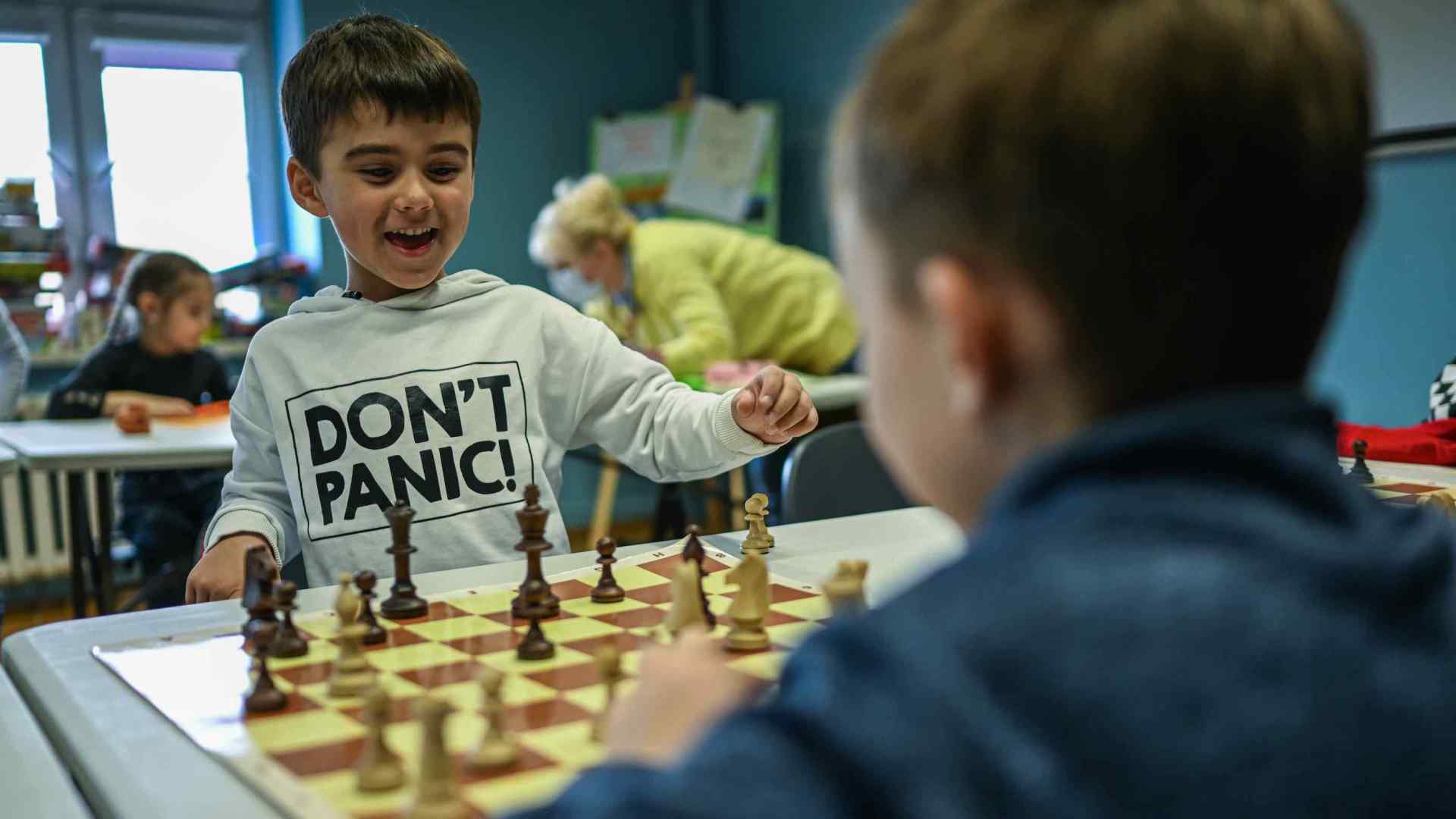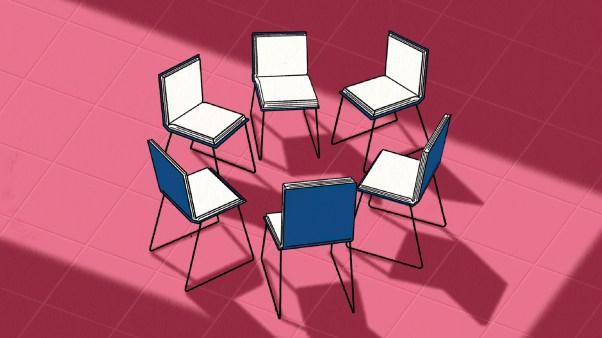A couple of weeks ago, my pastor’s nine-year-old son, who plays chess for fun, asked me what I thought about “Hans.”
He was referring to Hans Niemann, the American 19-year-old chess grandmaster facing cheating allegations.
World chess champion Magnus Carlsen, one of the best players ever, abruptly withdrew last month from a big tournament after he lost to Niemann. Carlsen later put out a statement saying that he believed Niemann had cheated extensively in his career, and that he found their previous game together to be strange. In response Niemann admitted to cheating online when he was 12 years old and in one inconsequential game when he was 16 but has denied cheating in more serious tournaments.
No one can say how Niemann might have cheated. During online chess, players can sneak a look at a chess engine—a tool that shows the best possible moves. Cheating during in-person games is tougher to imagine: Perhaps a player is getting signals from a person in the room, sneaking a look at an engine during a trip to the bathroom, or wearing some kind of buzzer.
The money and status reached in the heights of chess don’t come close to professional sports like soccer or football—why risk your reputation? But the pressure to succeed, and sin while trying, is a human condition. Cheating in chess may be more tempting in a way, because a chess engine can turn anyone into one of the best players in the world. In baseball, a steroid taker or pitch stealer would still have to be really good at baseball.
After more global hubbub than chess has seen in decades, Chess.com (one of the main websites for online tournaments) put out a lengthy report showing that Niemann had likely cheated in more than 100 online games, including in high-level tournaments. One indication of cheating is how closely his games adhere to chess engine moves.
Niemann was still a minor when he allegedly cheated on Chess.com, so the way Chess.com responded to his cheating caught my eye. He’s a professional elite player, but he was also a kid. Included in the extensive report on Niemann (which indicated that others at high levels of chess have also likely cheated online) are Slack messages and emails between Niemann and the leadership of Chess.com, including chief operating officer Danny Rensch.
The report says that Niemann confessed to cheating over the phone in 2020 when Rensch confronted him. Rensch allowed him to start a new account and asked him to email an admission of cheating to the Chess.com team and promise to not cheat again, which Niemann did not do.
When Rensch wrote Niemann this September about that 2020 conversation, according to the report, he said, “I would do that again for you or any young player I deemed to have lost their way and wanted to choose a better path forward.”
A teenage chess cheating scandal illustrates how young people face pressure in all parts of life to cut corners, be bad sports, or plagiarize schoolwork. Parents can implicitly set expectations that “good” children succeed, or they can model the wrong approach to losses or setbacks by overreacting. But that doesn’t mean parents should pull children back from good endeavors.
“There is nothing better for a person than to enjoy their work,” says Ecclesiastes 3:22.
Once I recovered from the shock of my pastor’s nine-year-old knowing about the happenings of elite professional chess, I began thinking: What does it mean for kids to see the best chess players in the world cheating?
In places like Success Academy, a charter school network of about 20,000 students in New York City that includes chess as part of its core curriculum, kids aren’t in the professional chess world, but they do play in high-level tournaments and know Magnus Carlsen’s name. One Success chess team won first place at a national elementary tournament last year.
During the pandemic, Success was able to easily move its chess program online, but children had more temptations to cheat during remote learning, according to Matt Morales, who leads the Success Academy chess program. Morales said he addressed “isolated incidents” of cheating, which he treated as a learning experience. He tells students cheating is not acceptable but also makes it clear that if they do cheat, “we can move forward from this, and it’s not going to define you as a scholar.”
He told CT he emphasizes to students that cheating “takes away from the experience of the joys of the game. The game is mental stimulation and challenging yourself.”
Catholic ethicist Alasdair MacIntyre, in a 1978 essay titled “How to Identify Ethical Principles,” wrote about children playing chess for a candy reward.
If, by cheating at chess, the child can obtain the candy more or as easily than by playing chess well, the child has indeed a good reason for cheating. … But when the child comes to appreciate chess as an activity in and for itself … then the child by cheating merely frustrates him or herself. For the child can only achieve the goods of chess-playing by playing well.
Coaches see opportunities for teaching the value of chess “in and for itself” by the very nature of the game. In chess, not winning is normal. The best players regularly draw and lose games. Coaches see that as an opportunity for kids to focus on playing quality games or appreciating the quality of their opponent’s games rather than focusing on winning or losing. It’s the basics of sportsmanship.
Jay Stallings, an experienced chess coach in California, told me he had plenty of incidents of children taking some “liberties,” as he called it, in games.
When Stallings talks to the kids in his program about cheating, he frames it in terms of how they think about great players. He asks them, “If I tell you that somebody lost the game of chess, would you think that was a person that wasn’t very smart?” They say no, because grandmasters lose games. He tells them that he has lost a lot of games too.
He tells them about a tournament he played where his opponent was outplaying him but then made a big blunder. He was disappointed to see the mistake, “a horrible brushstroke across a Picasso.” After he won the game, he told his opponent that he was completely outplayed until that last mistake. And he tells his students to notice things like that about their games if they win, so they can discuss the quality of the game with their opponent.
One girl was crying after one of his students beat her, he recalled, and he told the student to go tell her something nice like, “You almost beat me” or “That move you played really scared me.” The student went over and said, “Hey, I just wanted to say, you almost scared me.” That made Stallings laugh, but he was proud.
Stallings gives his students chess “passports,” where they could earn stickers for various skills learned. He doesn’t want them to walk into chess club and think only, Am I going to lose every game today? But he also wants his students to have really strong chess skills. If they have the tools to play a good game and lose, he said, “they understand, ‘My opponent played really well.’”
Presbyterian minister Fred Rogers, in his book Mister Rogers Talks to Parents, argues for the importance of love surrounding competitive activities. Kids who are “strong competitors,” he wrote, have a little voice within that says, “It’s all a matter of winning or losing love.” He continued:
There’s probably no way we can keep our children from feeling sad or angry when they lose. … A child may seem to find little comfort in our saying, “But you tried really hard and I’m proud of you.” It takes time to get over a disappointment. For those children who have learned to feel valued and loved by the people they love, these disappointments do pass. [The children] who feel they have to bank everything on their performance come to believe that losing in a competition means being one of life’s unloved ‘losers.’
According to coaches and Mister Rogers, parents should love competitive kids, appreciate their excellence, and help them through disappointment so they don’t feel such a weight of expectation that they start cutting corners. Coaches should help kids learn to win well (showing compassion to opponents) and lose well (appreciating that their opponents played better). Parents and coaches should help kids to love chess, or whatever endeavor they do, for its own sake.











